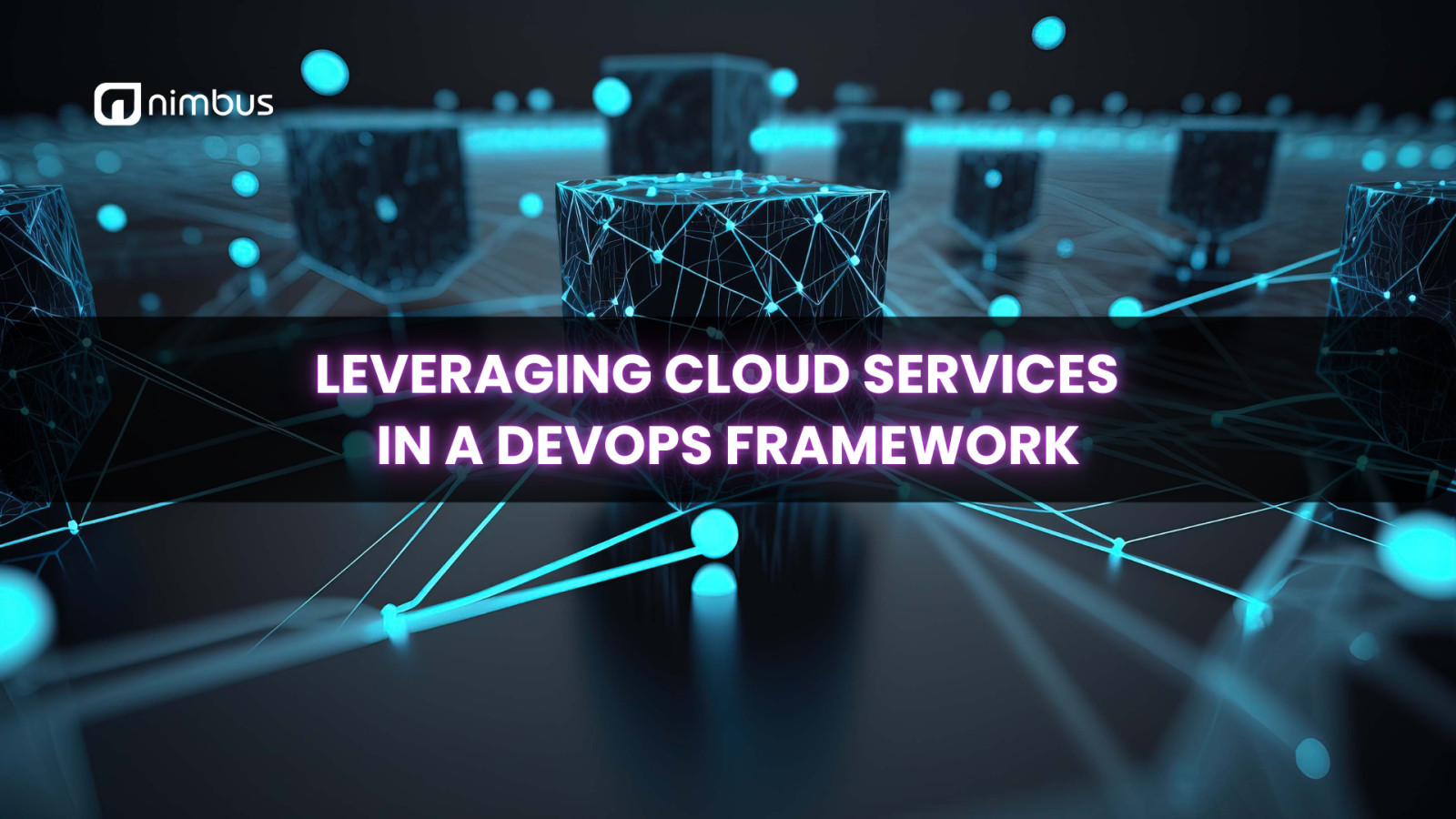Leveraging cloud platforms like Amazon Web Services (AWS), Microsoft Azure, and Google Cloud Platform (GCP) within a DevOps framework can significantly enhance efficiency, scalability, and reliability. This article explores how these cloud services integrate with DevOps methodologies, highlighting insights from Nimbus, a leading IT staffing company that specializes in providing offshore development centers (ODC) and staffing solutions.
The Integration of Cloud Services in DevOps
DevOps, a combination of "development" and "operations," aims to shorten the software development lifecycle and provide continuous delivery with high software quality. Cloud services play a pivotal role in achieving these goals by offering robust infrastructure, automation tools, and scalable resources. Here’s how AWS, Azure, and GCP contribute to a seamless DevOps environment:
Amazon Web Services (AWS):
Infrastructure as Code (IaC): AWS provides tools like AWS CloudFormation and AWS CDK (Cloud Development Kit) that enable developers to define and provision infrastructure using code. This aligns with the DevOps principle of automation and consistency.
Continuous Integration/Continuous Deployment (CI/CD): AWS CodePipeline and AWS CodeBuild facilitate automated build, test, and deployment processes. These tools integrate seamlessly with other AWS services and third-party applications.
Monitoring and Logging: AWS CloudWatch and AWS X-Ray offer comprehensive monitoring and logging solutions, essential for maintaining the health and performance of applications in a DevOps framework.
Microsoft Azure:
Azure DevOps Services: Azure provides a suite of DevOps services, including Azure Pipelines for CI/CD, Azure Repos for version control, and Azure Test Plans for automated testing. These services are designed to work together and integrate with other tools in the DevOps ecosystem.
Scalability and Flexibility: Azure's Virtual Machine Scale Sets and Azure Kubernetes Service (AKS) allow for scalable and flexible application deployment, essential for dynamic DevOps environments.
Security and Compliance: Azure’s robust security and compliance offerings ensure that DevOps practices adhere to industry standards and regulations, protecting data and applications from threats.
Google Cloud Platform (GCP):
Automated Deployment: GCP’s Cloud Build and Cloud Deploy enable fast and reliable CI/CD pipelines, automating the build and deployment processes.
Containerization: Google Kubernetes Engine (GKE) simplifies the management and orchestration of containerized applications, a key aspect of modern DevOps practices.
Data and Analytics: GCP’s BigQuery and Cloud Pub/Sub provide powerful data processing and analytics capabilities, aiding in the monitoring and optimization of DevOps workflows.
Nimbus Insights: Cloud Services in DevOps
Nimbus, an expert in IT staffing and ODC services, has observed firsthand the transformative impact of integrating cloud services within a DevOps framework. According to Nimbus, the key benefits include:
Enhanced Collaboration: Cloud platforms facilitate better collaboration between development and operations teams. Tools like AWS CodeCommit, Azure Repos, and Google Cloud Source Repositories provide centralized version control, enabling teams to work together more efficiently.
Scalability and Flexibility: Leveraging cloud services allows businesses to scale their infrastructure up or down based on demand. This flexibility is crucial for DevOps practices, where rapid deployment and scaling are often required.
Cost Efficiency: Cloud platforms offer pay-as-you-go pricing models, which can lead to significant cost savings. Businesses only pay for the resources they use, avoiding the need for large upfront investments in infrastructure.
Automation and Speed: Automation tools provided by cloud services accelerate the CI/CD pipeline, reducing the time required to deploy new features and updates. This speed is essential for maintaining a competitive edge in today’s fast-paced market.
Reliability and Performance: Cloud platforms ensure high availability and performance through advanced monitoring and logging services. This reliability is critical for maintaining the stability of applications and services in a DevOps framework.
Nimbus: Your Partner in Cloud-Driven DevOps
Nimbus offers tailored IT staffing solutions and ODC services to help businesses harness the power of cloud services in their DevOps practices. Here’s how Nimbus can assist:
Expert Staffing: Nimbus provides highly skilled IT professionals with expertise in AWS, Azure, and GCP, ensuring that your DevOps teams are equipped with the knowledge and experience needed to leverage these platforms effectively.
Offshore Development Centers (ODC): Nimbus’s ODC services provide dedicated teams that can work as an extension of your in-house staff. This model offers cost-effective and flexible solutions, allowing businesses to scale their operations seamlessly.
Consulting and Strategy: Nimbus’s consulting services help businesses develop and implement effective cloud and DevOps strategies, tailored to their specific needs and goals. This includes selecting the right cloud platform, designing CI/CD pipelines, and ensuring security and compliance.
Training and Support: Nimbus offers training programs and ongoing support to ensure that your teams are up-to-date with the latest cloud technologies and DevOps practices. This continuous learning approach ensures that your organization remains at the forefront of innovation.
Leveraging cloud services like AWS, Azure, and GCP within a DevOps framework offers numerous benefits, including enhanced collaboration, scalability, cost efficiency, automation, and reliability. As businesses continue to adopt DevOps practices, the integration of cloud platforms will play an increasingly critical role in driving success. With insights from Nimbus and their comprehensive IT staffing and ODC services, organizations can navigate this complex landscape and achieve their DevOps goals with confidence.
